Everyday life of ambulance workers: to change as to war
Categories: Health and Medicine | One Day
By Pictolic https://pictolic.com/article/everyday-life-of-ambulance-workers-to-change-as-to-war.htmlThe work of doctors cannot be called easy. This is a constant tension, colossal responsibility and readiness for unforeseen situations.
To understand how doctors in Ufa work in the context of "optimization of healthcare costs", photographer Vadim Braidov spent the night on the ambulance, watching the work of paramedic Elena Akhmetzyanova.
(Total 18 photos)
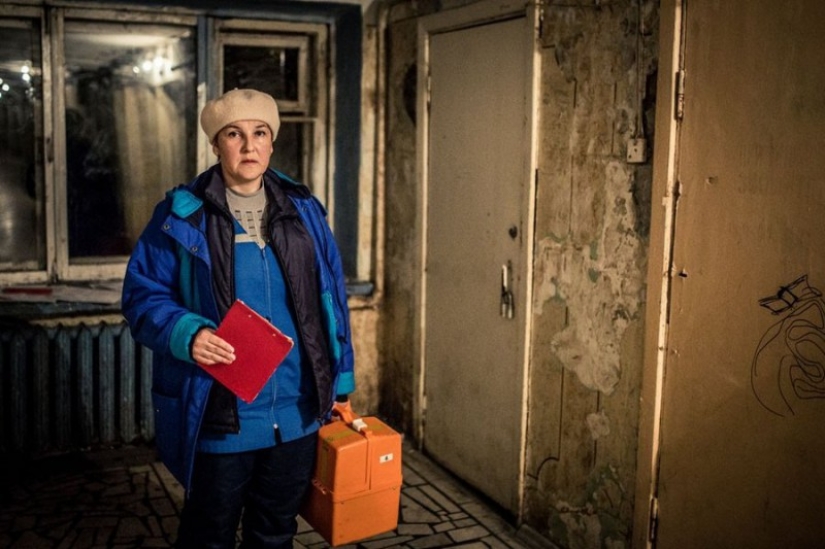 Source: ribalych.ru
Source: ribalych.ru
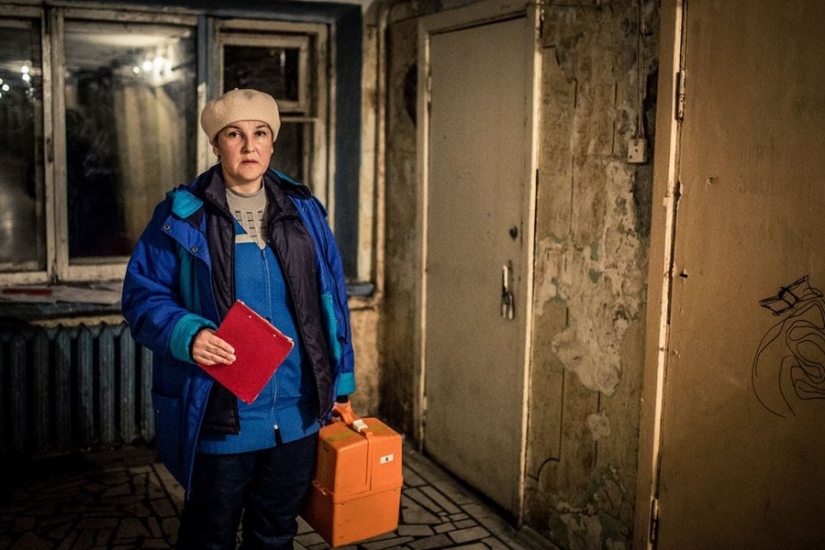
1. A paramedic is a universal specialist who can go on a call as part of a team, i.e. together with the doctor, and independently. Due to the lack of specialists, most often Elena goes to calls only with a driver.
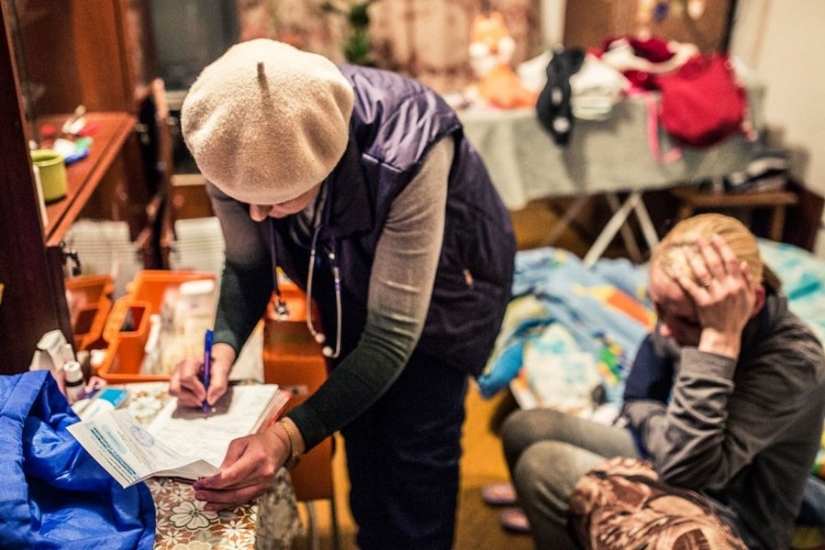
2. Often, patients need not so much medical assistance as psychological. During the night, Elena hears dozens of stories from the lives of various people.
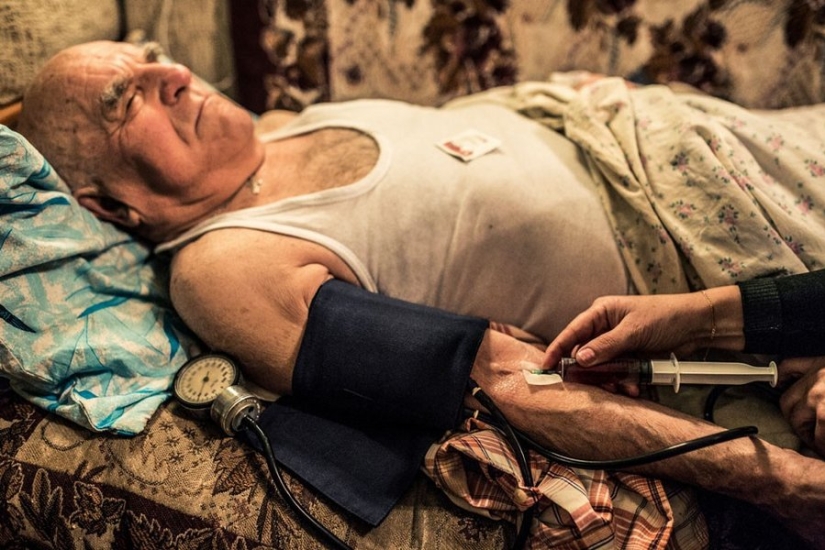
3. Instead of an injection, the paramedic can give the patient pills, but it is not always possible to do without injections.
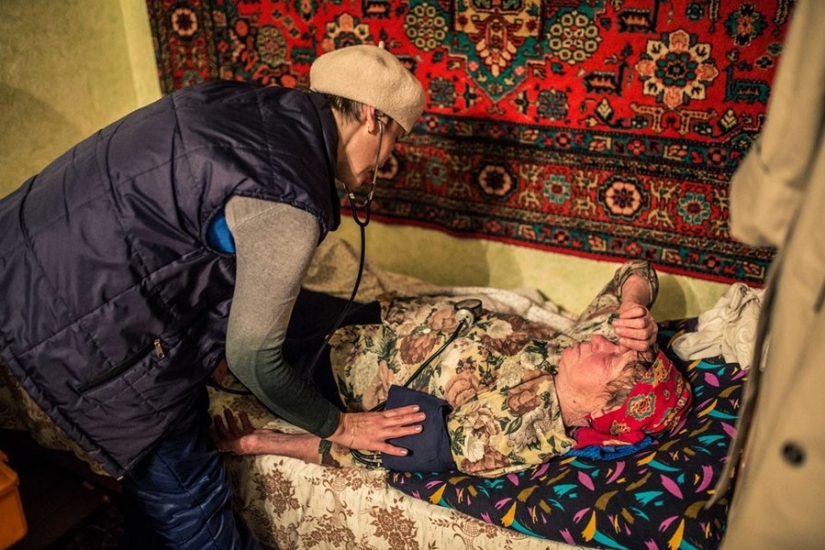
4. Most night calls are made by pensioners. Often the reason for the calls is excessive excitement. Elena tries to be good-natured with needlessly panicking old people, but at the end of the 24-hour shift, it is no longer easy.
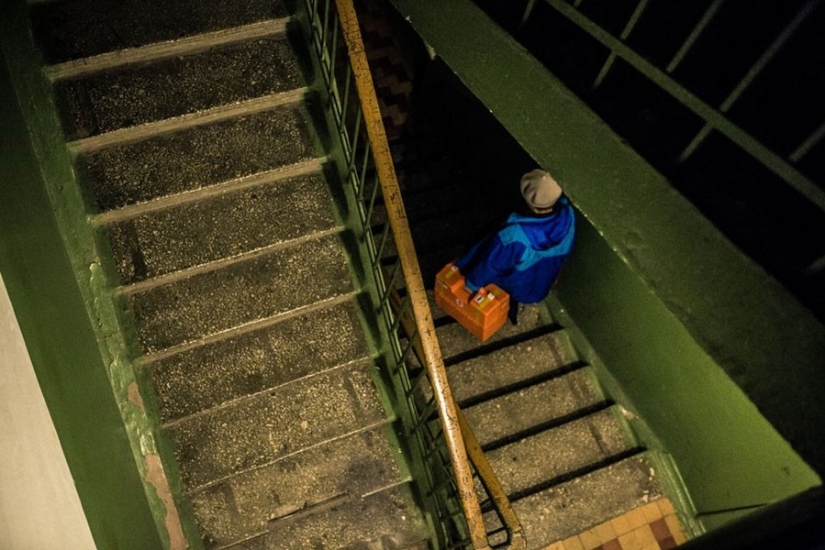
5. Many houses in Ufa are not equipped with elevators. When the paramedic jokingly thanks the dispatchers for the fact that the call was from an apartment on the first floor, you understand that this is laughter through tears.
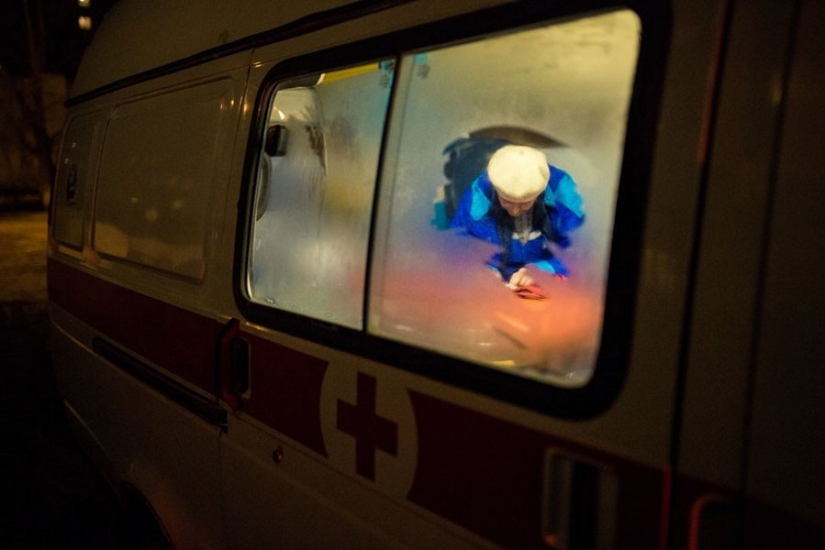
6. One call takes 15-20 minutes, but the same amount of time is needed to fill out the documents.
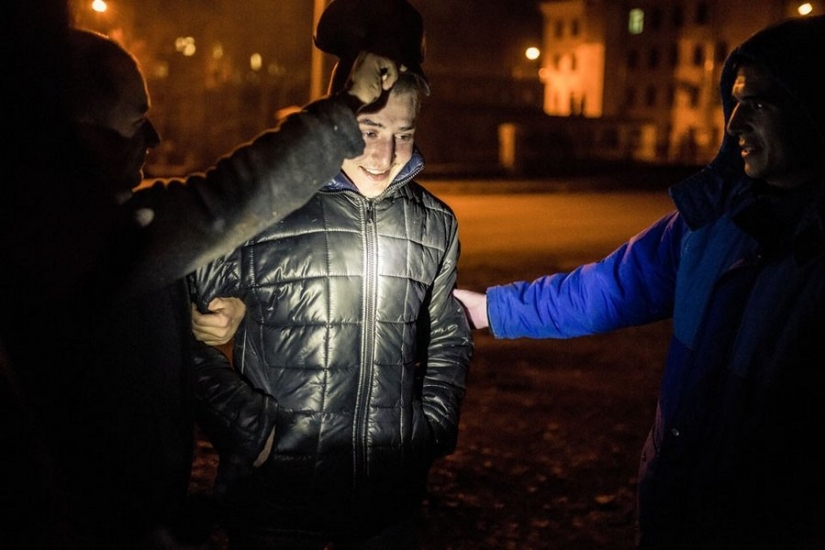
7. Resuscitators picked up a drunken "patient".
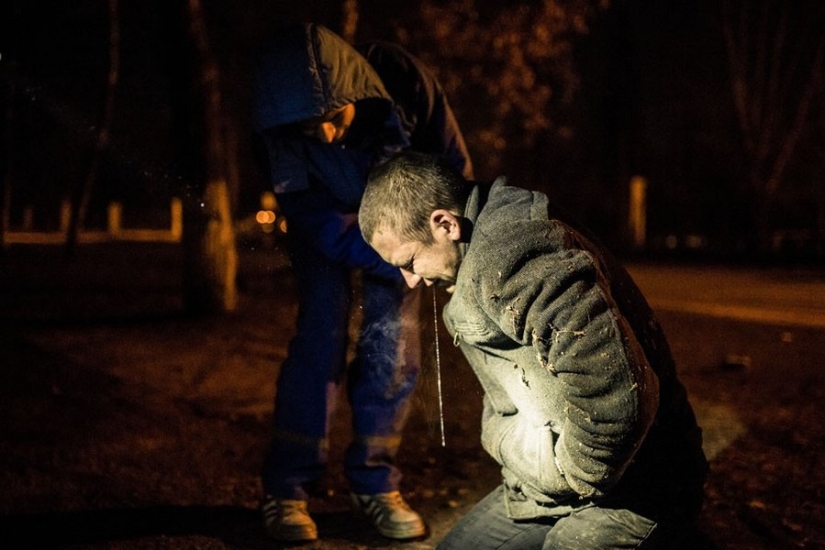
8. Resuscitators often have to help drunks who have no strength left to rise from the ground. Citizens do not always respond adequately. Before the start of optimization, a team was on duty at the ambulance station to help calm violent patients, now this is only in psychiatric hospitals.
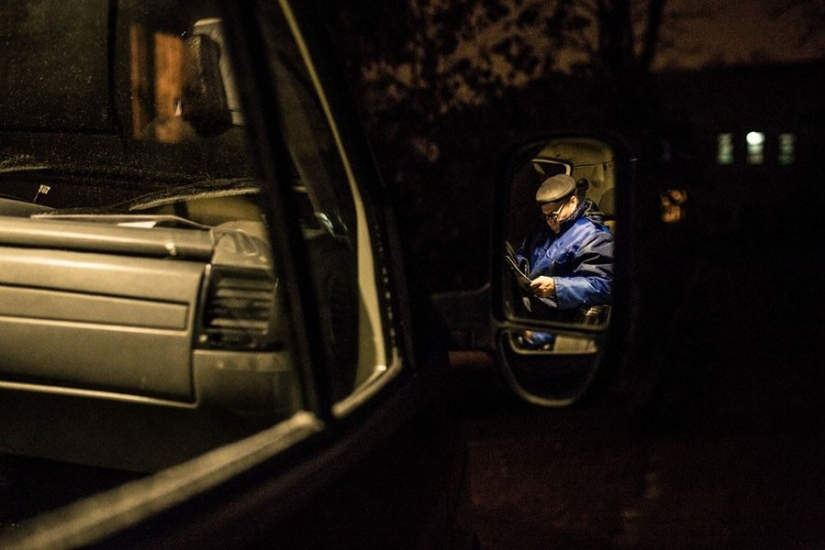
9. Drivers are prohibited from leaving the car during a call, but sometimes they do, for example, to help the paramedic cope with excessively active patients or their relatives. It is forbidden for the driver to carry the sick, as he does not have the necessary qualifications.
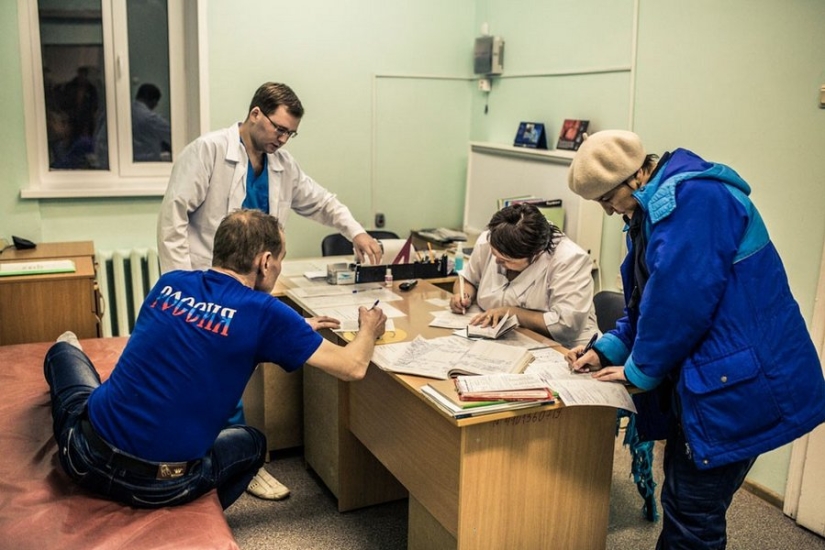
10. If it is necessary to transfer the patient, the paramedic calls colleagues for help or, which happens more often, copes on his own.
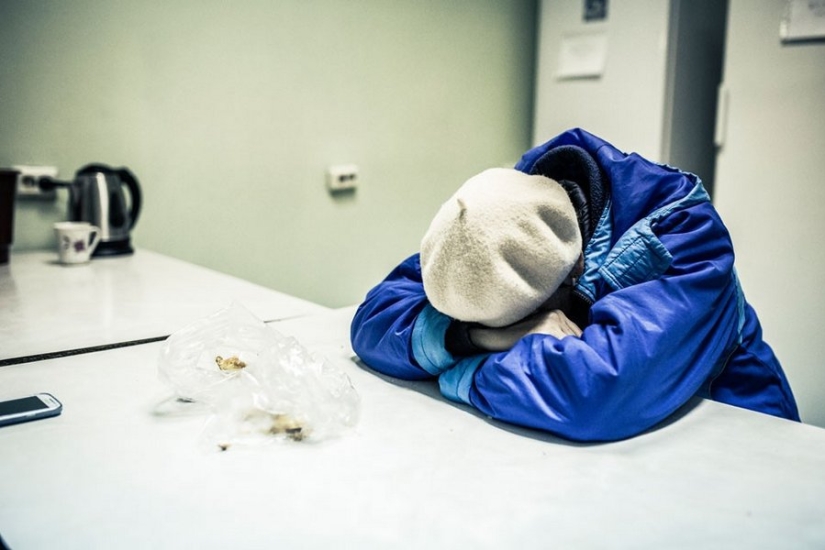
11. A paramedic can work 12-hour or daily shifts. In the morning, at the end of a 24-hour shift, Elena can barely stand on her feet.
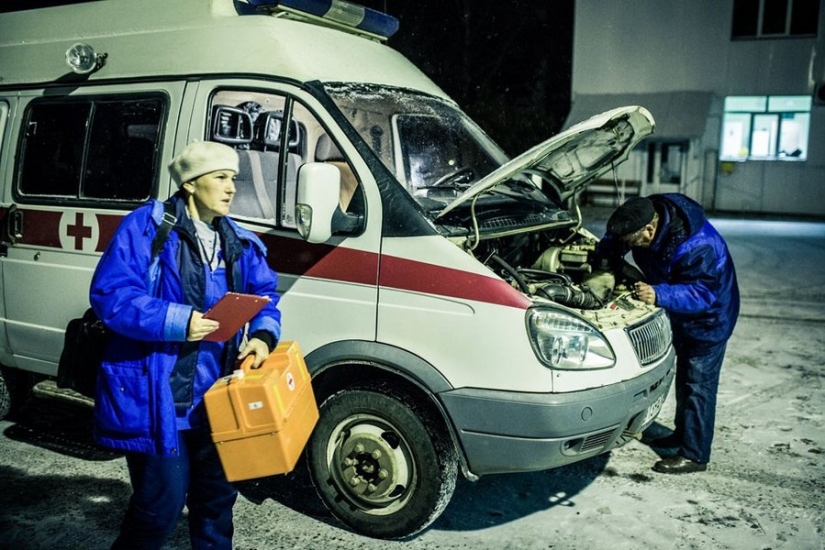
12. On average, the break between calls does not exceed 15 minutes, so the doctor cannot sleep during the shift.
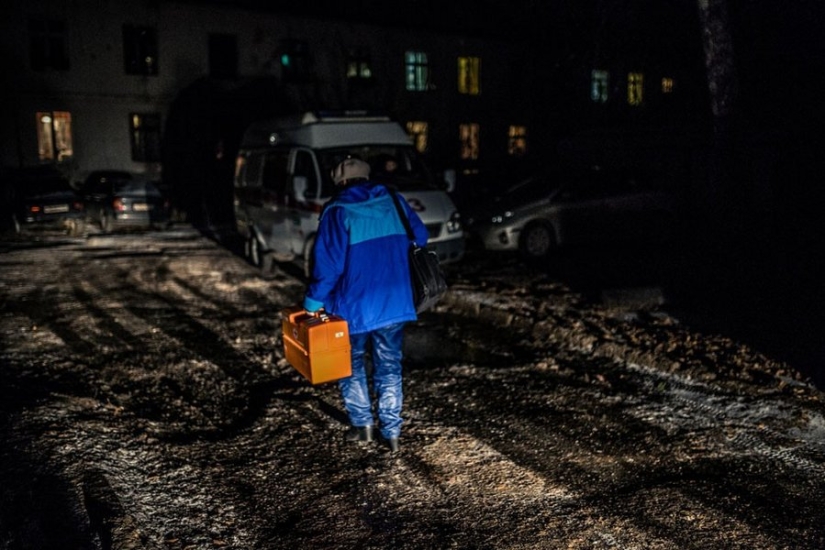
13. Elena carries a suitcase with medicines and a cardiograph herself, since she does not have a nurse, and the driver is forbidden to leave the car: he is responsible for all the expensive equipment that is in the car.
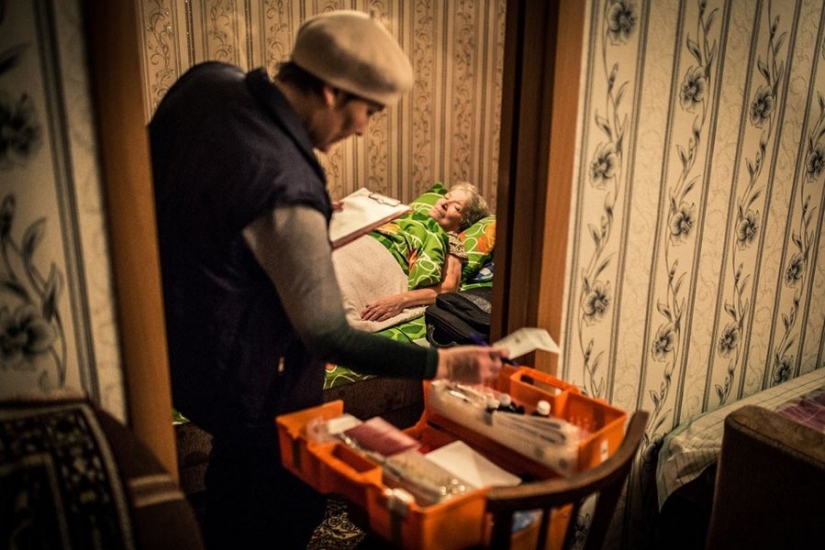
14. Having determined the cause of the ailment, Elena offers the patient hospitalization. You can go to the hospital in an ambulance or come yourself in the morning. Most choose the second option.
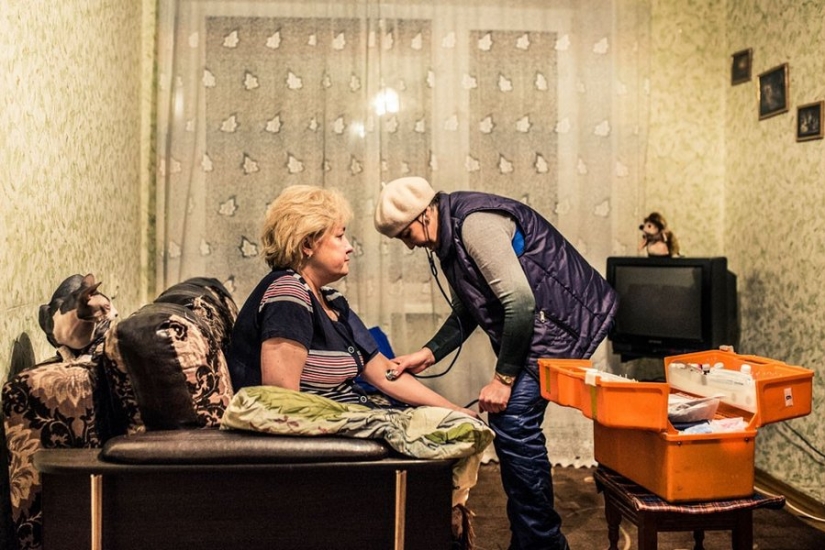
15.
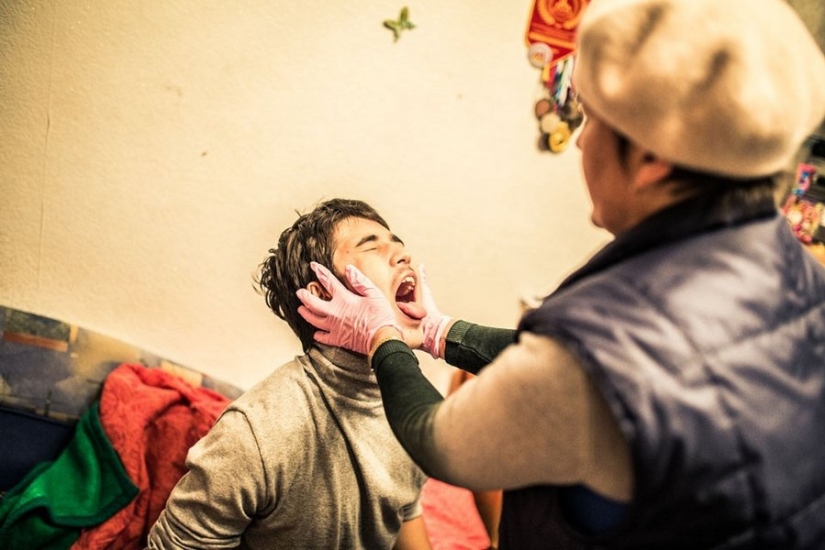
16.
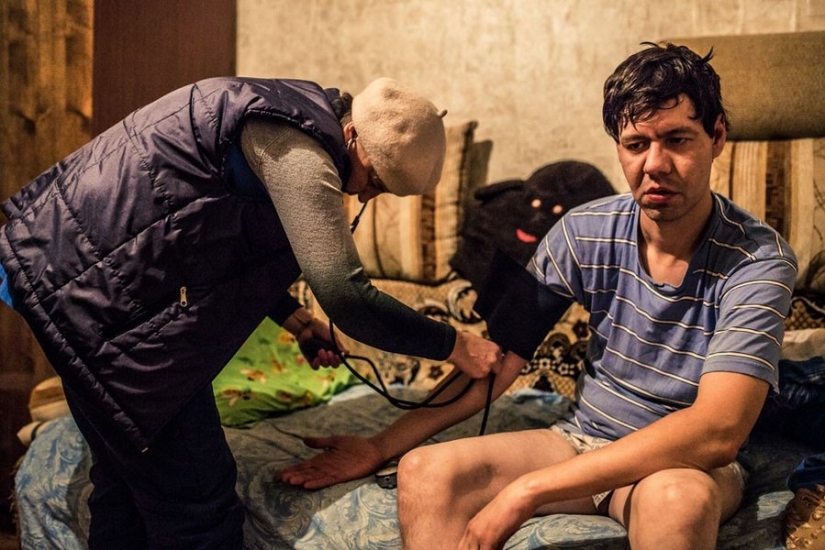
17. Doctors are often called because of a strong withdrawal syndrome. Alcohol intoxication can also lead to coma.
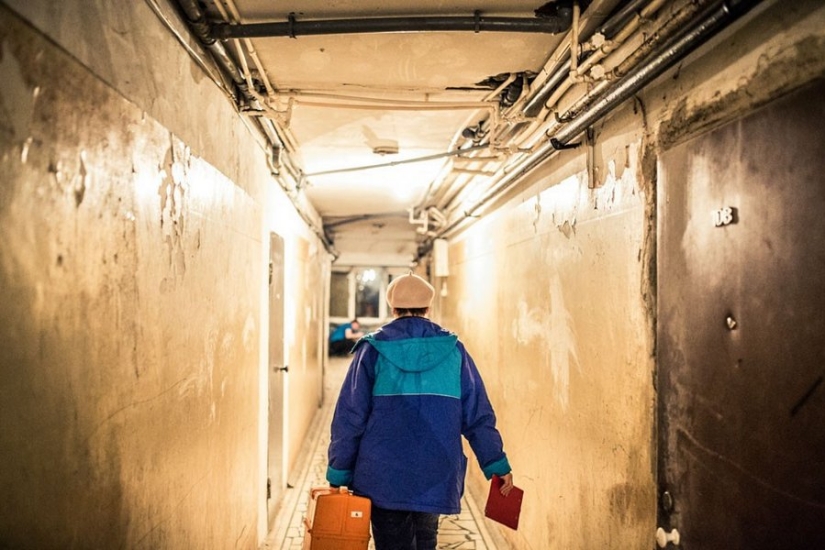
18. Among the medicines in the paramedic's suitcase there are also potent drugs. To get these drugs, drug addicts attack doctors. Since last year, according to Elena, attacks have become more frequent. “I have experienced this myself,” she says. “Every day you go to work, it’s like going to war.”
Keywords: Doctors | Ambulance | Ufa
Post News ArticleRecent articles

It's high time to admit that this whole hipster idea has gone too far. The concept has become so popular that even restaurants have ...

There is a perception that people only use 10% of their brain potential. But the heroes of our review, apparently, found a way to ...
Related articles

We all know that allergies can be cats, dogs, chocolate, citrus fruits and pollen. But things that can cause a dangerous reaction, ...

Relatively recently, the world began to learn about gender diversity. Started talking about a lot of things that have never been ...

Because of the coronavirus pandemic, many of us feel tired and irritated. And if fatigue occurs due to stress and lack of sleep, ...

New Year's is a time to surprise and delight loved ones not only with gifts but also with a unique presentation of the holiday ...